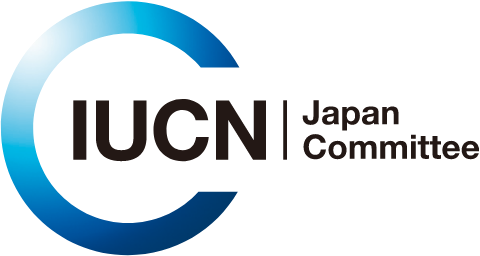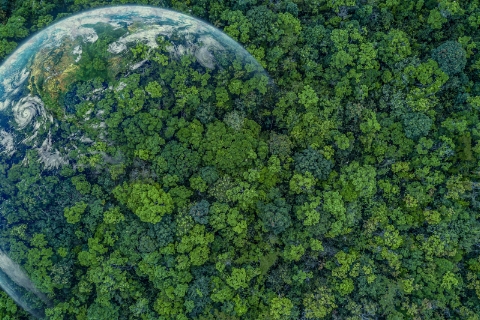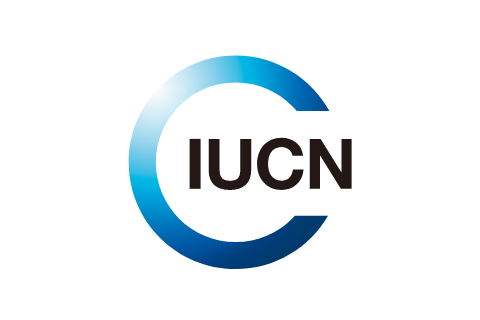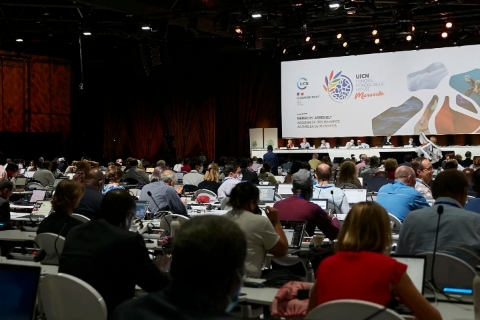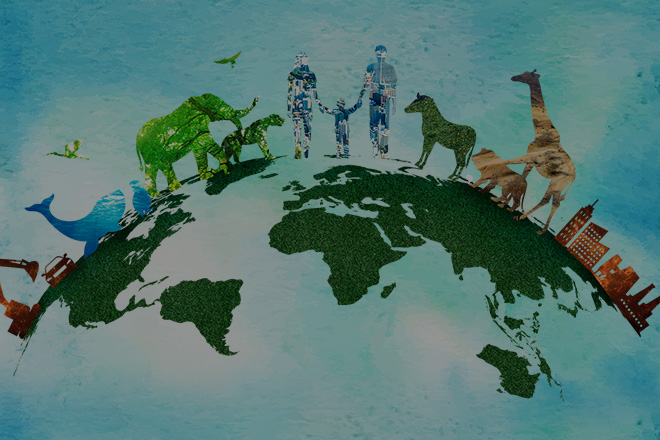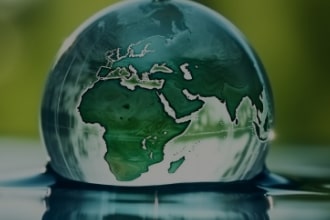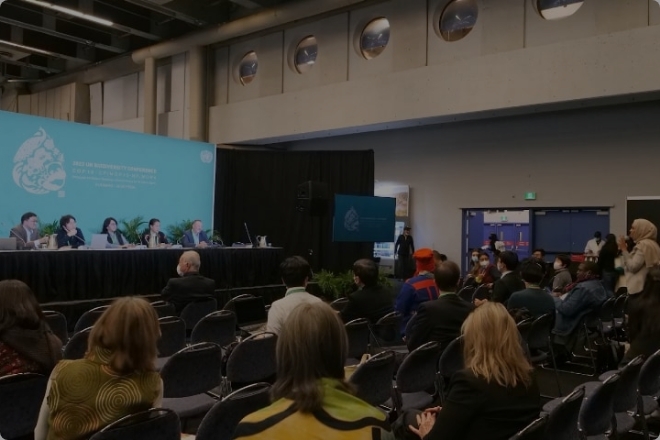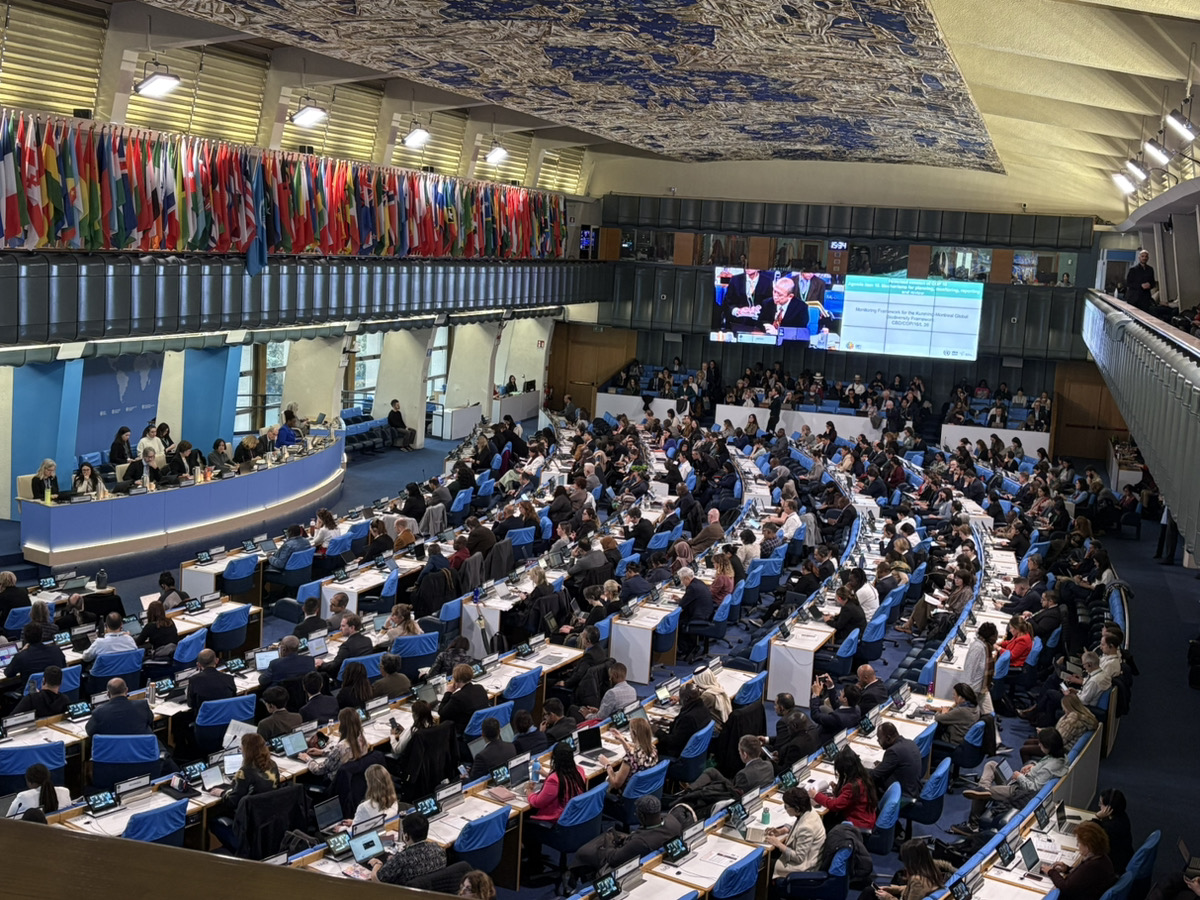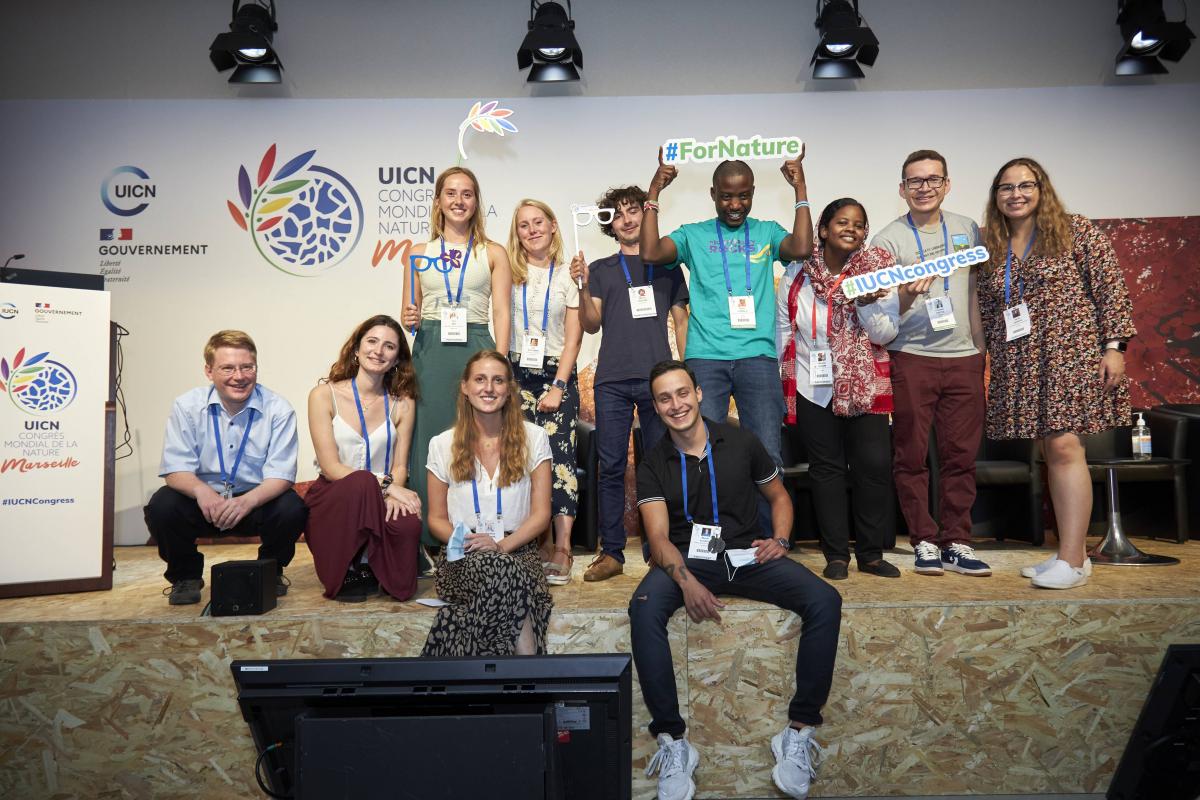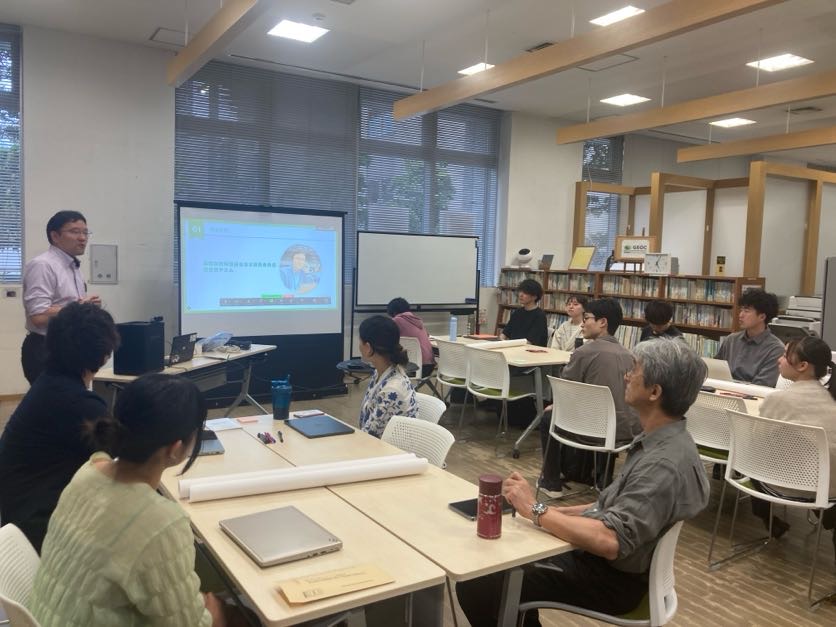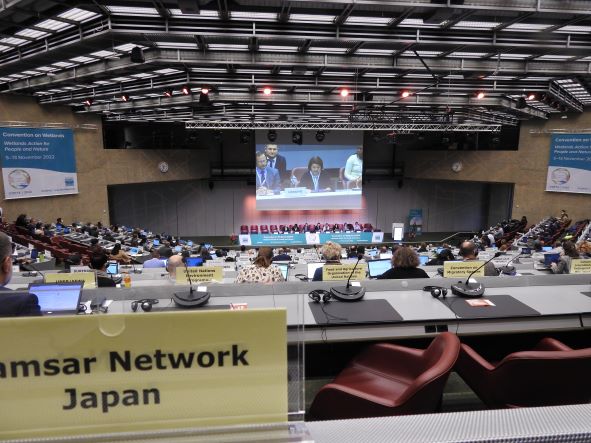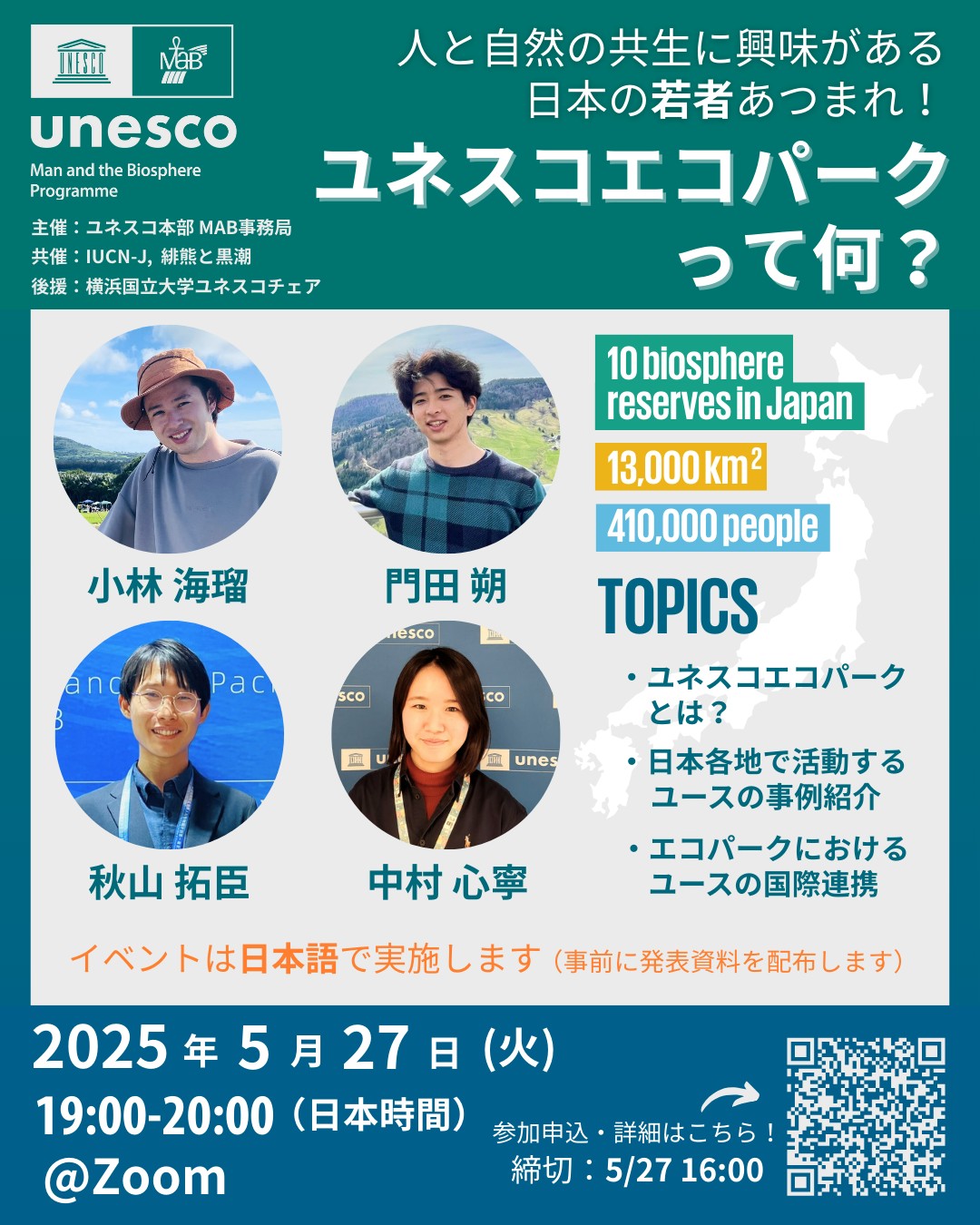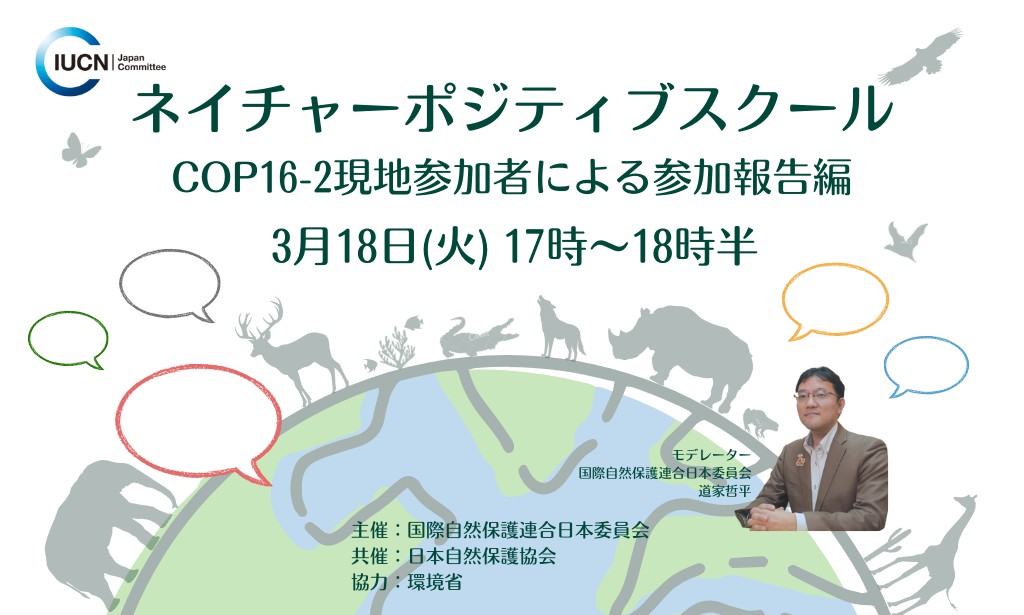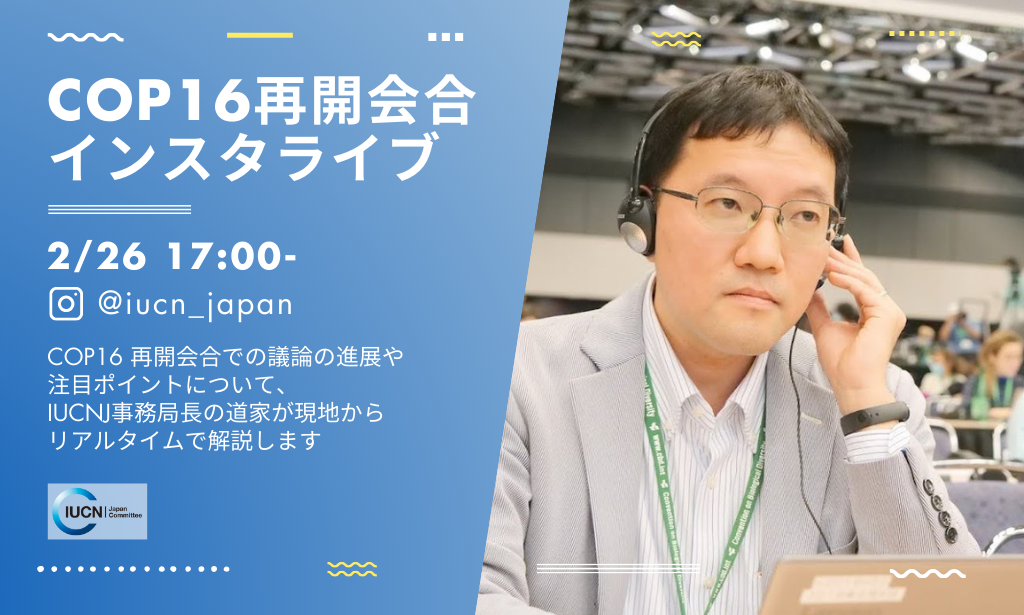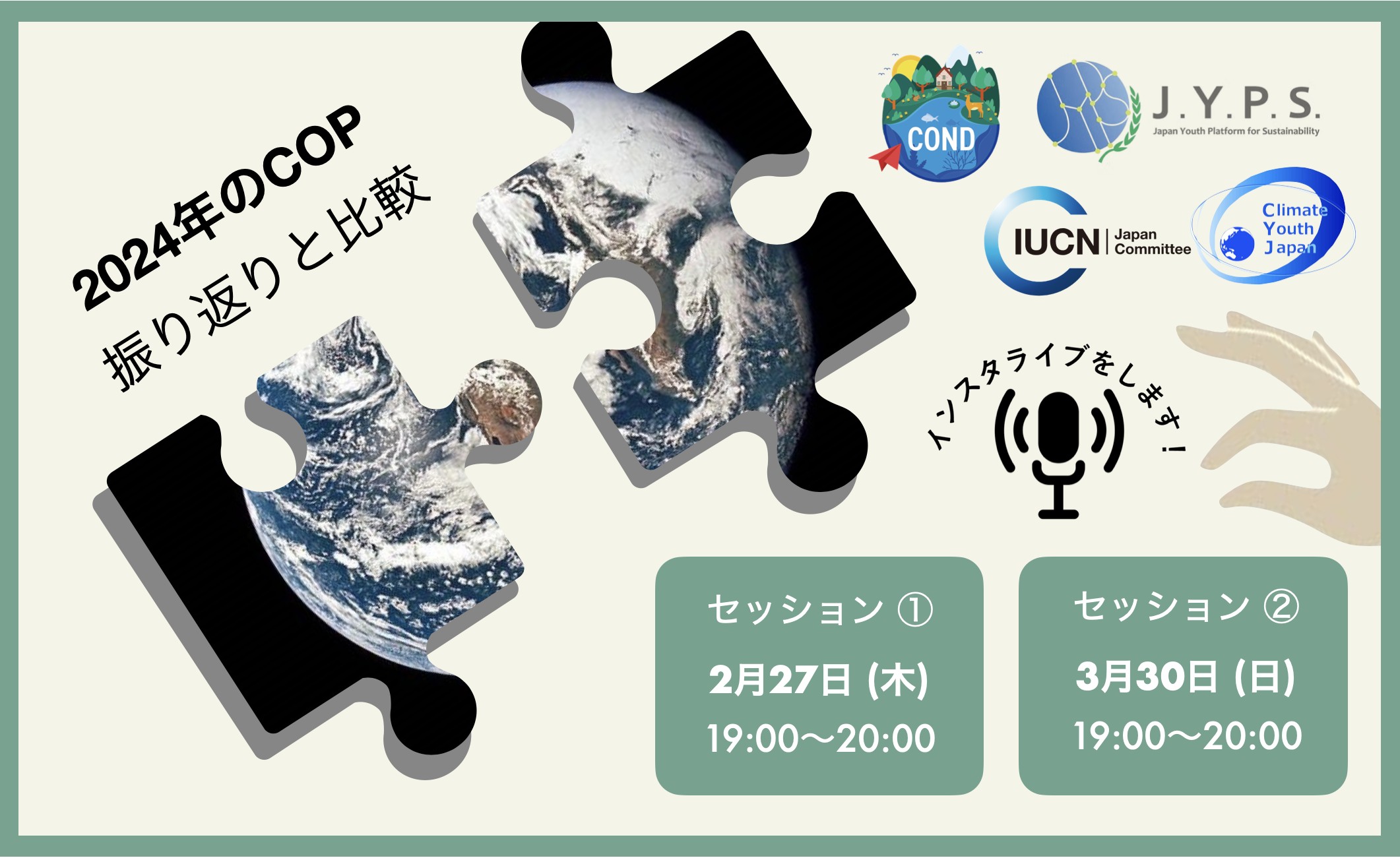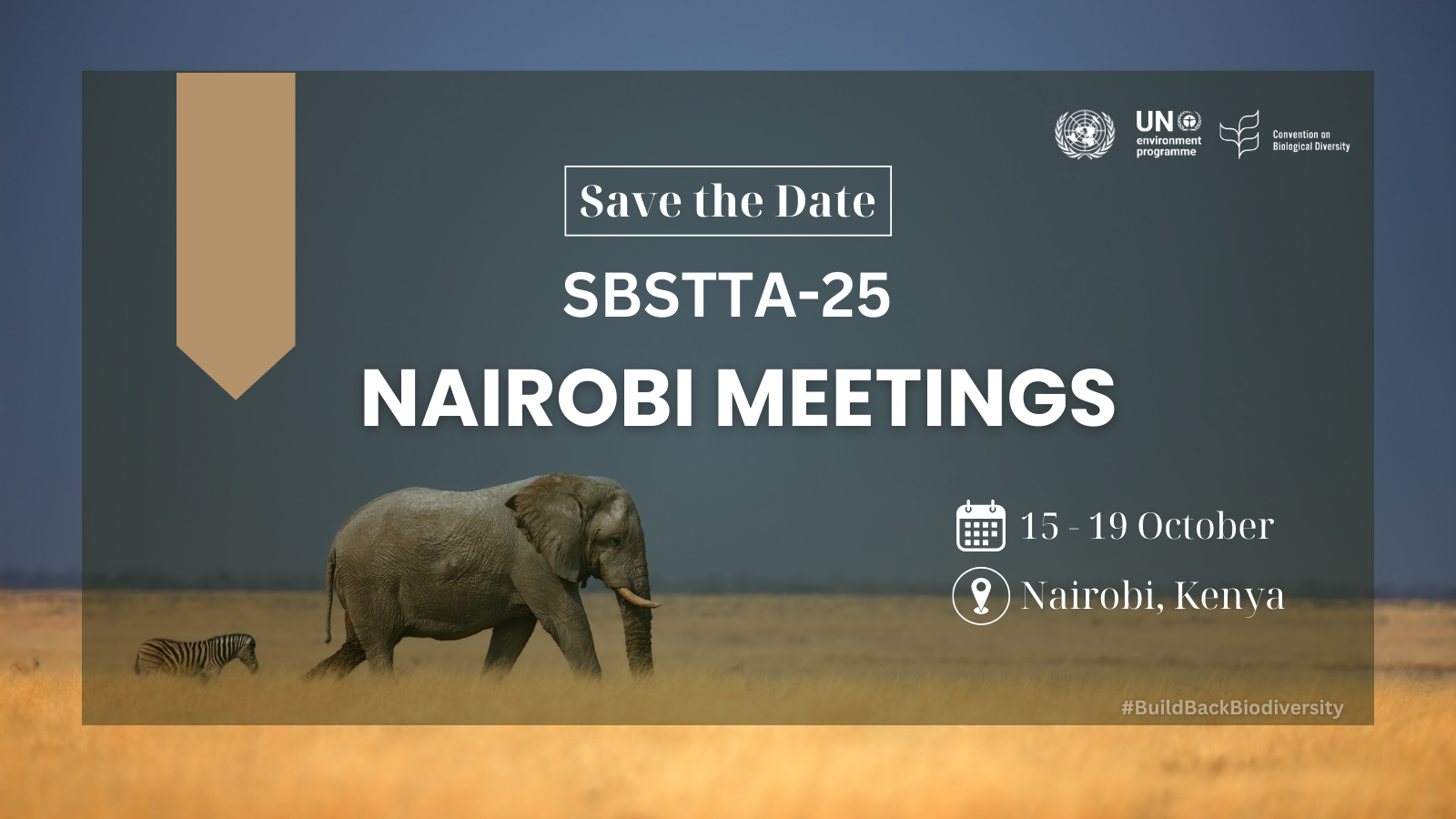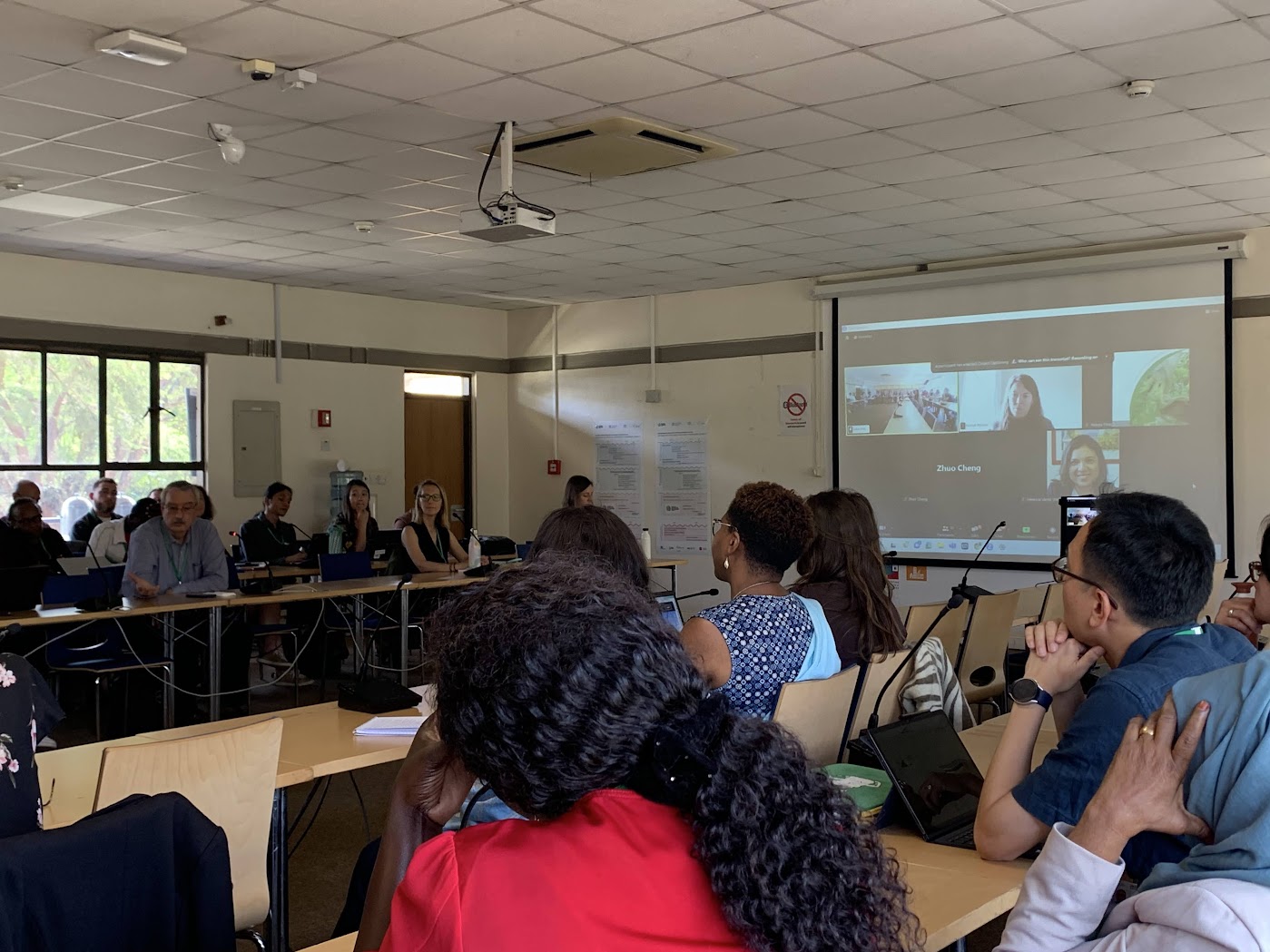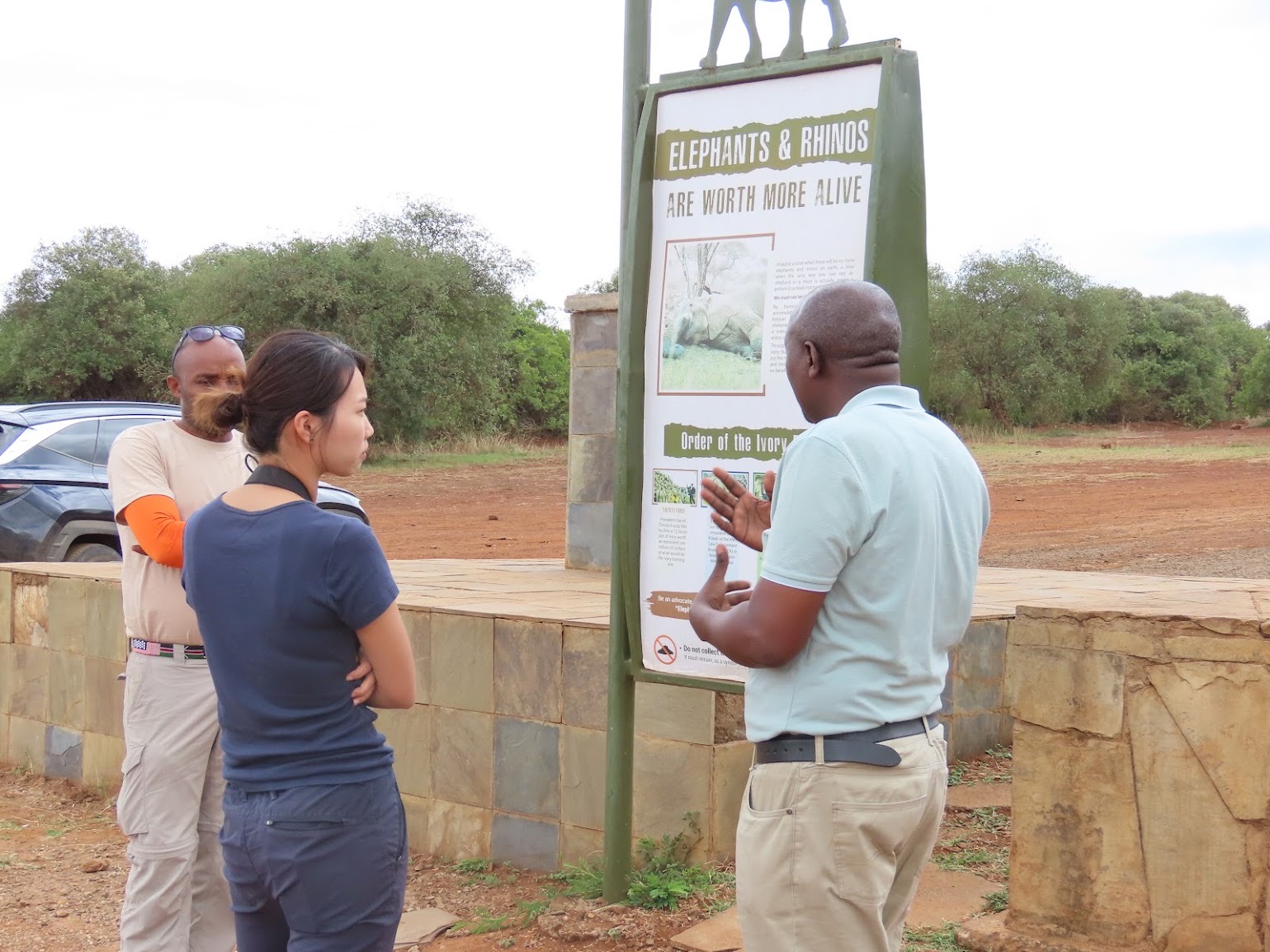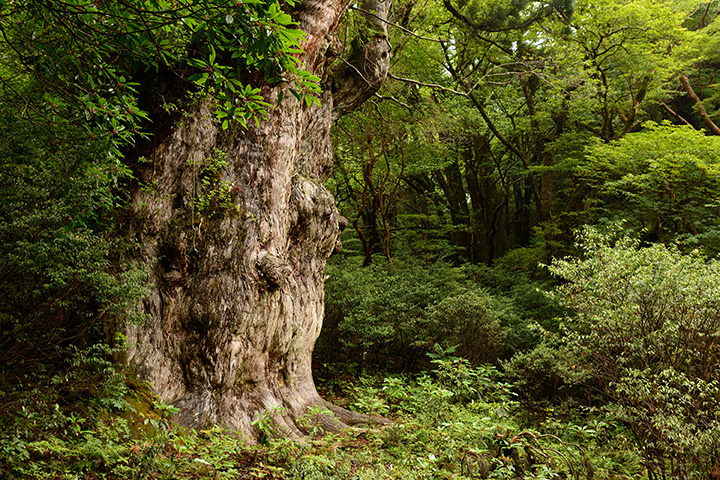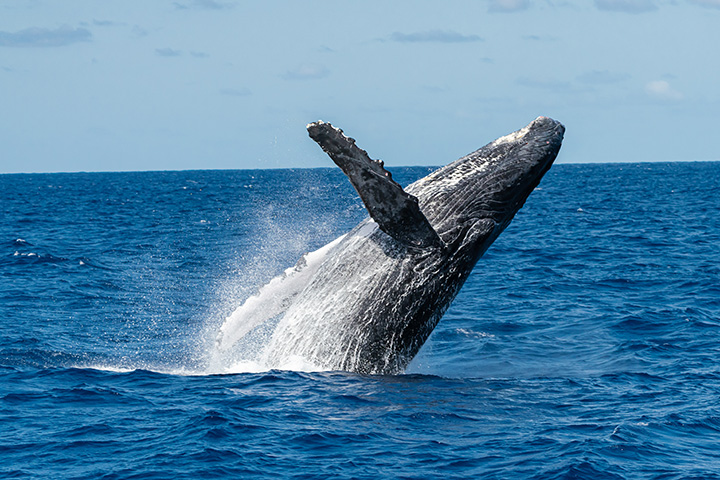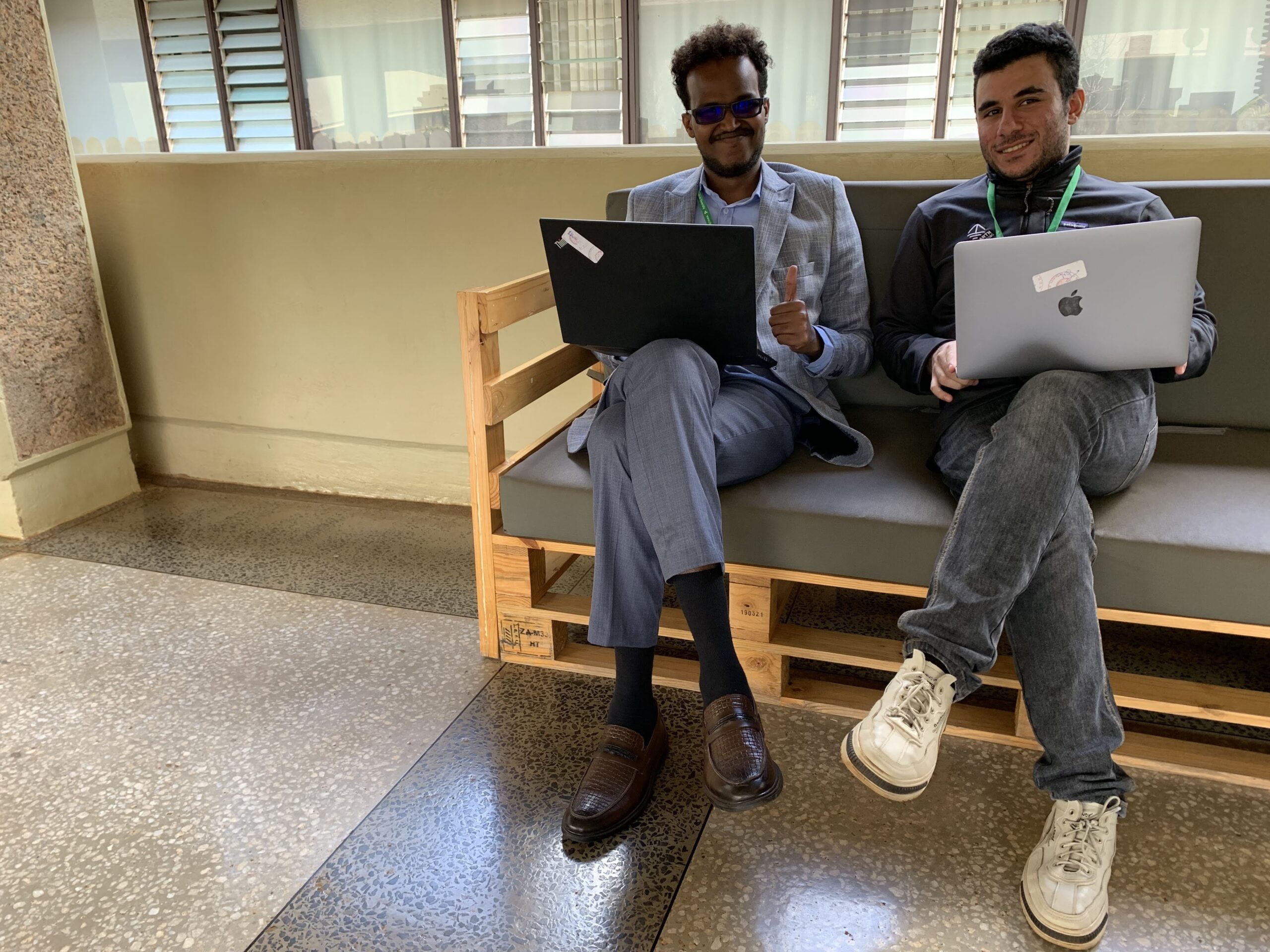
筆者:IUCN日本委員会 インターン Danmeng CAI
気候変動とそれが生物多様性に与える影響についての懸念が高まる中で、アフリカからの声は、この世界的な危機に絡め取られた現実と希望を反映しています。私はIUCN日本委員会でのインターンシップ中に、ケニアのナイロビで開催された第25回科学技術助言補助機関会合(Subsidiary Body on Scientific, Technical and Technological Advice:SBSTTA 25)に参加し、アフリカの野生生物基金(African Wildlife Foundation)の代表者、シェリフ・エルレファイ(Sherif Elrefaey)とモハメッド・アリ・ミレ(Mohamed Ali Mire)に、アフリカの環境問題に対する懸念を伺う機会を持ちました。
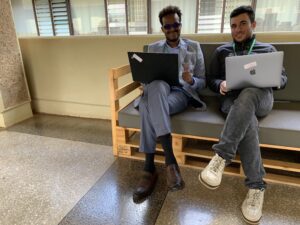
一方、アフリカ大陸の東側にあるソマリア出身のモハメッド氏は、東アフリカにおける気候変動の影響について詳しく話しました。彼は説明によると、迅速な気候変動は、降雨パターンの変化に影響し、その結果、食料と水の不足を悪化させており、食料価格を上昇させ、農家を経済的に困難な状況に陥れていました。ソマリア、ケニア、エチオピア、ウガンダ、ジブチを含む東アフリカ地域の国々は、洪水や飢饉のような気候に起因する災害の直撃を受けていました[1]。
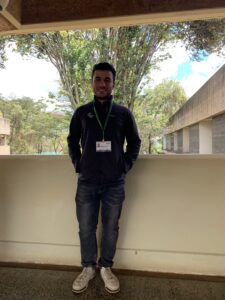
アフリカの野生生物基金の代表者: シェリフ・エルレファイ from エジプト
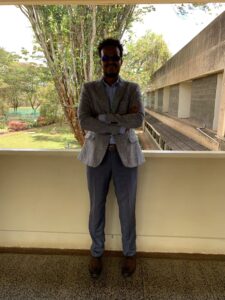
アフリカの野生生物基金の代表者: モハメッド・アリ・ミレ from ソマリア
モハメッド氏の関心は地域の社会構造にも及んでおり、これもまた気候ショックの影響を受けていました。食糧不足と失業は人々に移動を促し、社会的不安と、潜在的には、若者の間で暴力団体への参加が増加する原因となっている、と述べました。アフリカにおける気候ショックをどのように抜け出すかと聞かれたら、彼は強固な法律、進歩した技術、そして気候変動緩和への資金増加を重要な解決策と見なしていました。彼はまた、若者の教育と技能開発の重要性を強調し、地元の農民に市場を提供することで、危機からの脱出への道を築くことができると述べていました。
シェリフ氏とモハメッド氏の両方とも、国際的な連携の重要性を強調しました。シェリフ氏は東アジア諸国の気候対話への積極的な関与を評価し、モハメッド氏はこれらの国々の東アフリカへの投資の可能性を良い変化に繋がることを見ていました。
シェリフ氏とモハメッド氏の物語は、アフリカの異なる地域に根ざしているものの、希望と集団行動の共通の基盤で収束しました。彼らは、気候変動との闘いは孤独なものではなく、地理的および文化的境界を超えたグローバルな努力であることを例証しました。アフリカの若手専門家たちを通して、私たちは、より持続可能で包括的な未来へとつながる政府間の国際協力とNGOの絡み合った道筋の可能性を見えました。
[1]: Mohamed, Mire. (2023). Barriers to Effective Implementation of Climate Adaptation Plans in Somalia. Policy Brief. Juba Institute for Climate Adaptation. 2, https://jubainstitute.org/wp-content/uploads/2023/09/Policy-Brief-_Barriers-to-Effective-Implementation-of-Climate-Adaptation-Plans-in-Somalia.pdf, accessed 2023/10/25
Bridging Perspectives: Climate and Biodiversity Conversations from Egypt and Somalia
Intern at Japan Committee for IUCN Danmeng CAI

Among the growing concerns of climate change and its impacts on biodiversity, voices from Africa echo the reality and hopes entwined with this global crisis. During my internship at the IUCN Japan Committee, I participated in the 25th Subsidiary Body on Scientific, Technical and Technological Advice (SBSTTA 25) in Nairobi, Kenya, where I had a chance to sit down with two delegates from the African Wildlife Foundation(AWF), Sherif Elrefaey and Mohamed Ali Mire, to explore the African perspective on environmental concerns.
Sherif, an Egyptian delegate emphasized the essence of international cooperation in climate negotiations. With a background in international law and policy analysis, Sherifstressed the critical roles countries like Japan, South Korea, and China in fostering global unity against climate adversities. His journey through academic realm in Spain, Japan, and China, and his active engagement in policy analysis in the UAE, reflected aglobal endeavor to foster a unified response to climate and biodiversity challenges.

AWF Delegate: Sherif Elrefaey, from Egypt

AWF Delegate: Mohamed Ali Mire, from Somalia
On the east side of the continent, Mohamed Ali Mire from Somalia painted a vivid picture of climate change repercussions in East Africa. Changes in rainfall patterns, he explained, wereexacerbating food and water shortages, pushing food prices up and plunging farming families into economic hardships. Countries across the East African belt, including Somalia, Kenya, Ethiopia, Uganda, and Djibouti, faced the brunt of climate-induced calamities like floods and famine [1].
Mohamed’s concern extended to the social fabric of the region, which was also impacted by climate shock. Food scarcity and joblessness drove people to migrate, leading to social unrest and, potentially, a rise in violent group affiliations among the youth. However, Mohamed was hopeful. He envisaged stronger laws, enhanced technology, and increased funding towards climate change mitigation as pivotal solutions. He also underscored the importance of education and skill development for the youth, which, along with creating markets for local farmers, can pave a way out of the crisis.
Both Sherif and Mohamed underscored the importance of international collaboration. While Sherif appreciated the active engagement of East Asian countries in climate dialogues,Mohamed eyed the potential of investments from these nations in East Africa as a catalyst for positive change.
The narratives of Sherif and Mohamed, though rooted in different regions of Africa, converged on a common ground of hope and collective action. They exemplified that the battle against climate change was not a solitary one; it’s a global endeavor that transcends geographical and cultural boundaries. Through the lens of these young African experts, we glimpsedthe intertwined paths of international diplomacy and grassroots actions leading towards a more sustainable and inclusive future.
[1]: Mohamed, Mire. (2023). Barriers to Effective Implementation of Climate Adaptation Plans in Somalia. Policy Brief. Juba Institute for Climate Adaptation. 2, https://jubainstitute.org/wp-content/uploads/2023/09/Policy-Brief-_Barriers-to-Effective-Implementation-of-Climate-Adaptation-Plans-in-Somalia.pdf, accessed 2023/10/25
